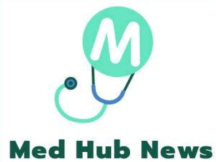"ที่ประชุมสมัชชาอนามัยโลก" ครั้งที่ 72 ถกรับมือ "โรคเขตร้อน" ที่ถูกละเลย สนับสนุนนโยบายหลักประกันสุขภาพถ้วนหน้า
"ที่ประชุมสมัชชาอนามัยโลก" ครั้งที่ 72 ถกรับมือ "โรคเขตร้อน" ที่ถูกละเลย สนับสนุนนโยบายหลักประกันสุขภาพถ้วนหน้า
เว็บไซต์สุขภาพ - News Update วันศุกร์ที่ 24 พฤษภาคม 62 : ที่ประชุมสมัชชาอนามัยโลกหารือเรื่องการกระจายฐานการผลิตยาเพื่อรับมือกับโรคเขตร้อนที่ถูกละเลย
และ ส่งเสริมการดูแลสุขภาพถ้วนหน้า กองบรรณาธิการ medhubnews.com เว็บไซต์สุขภาพ และ เพจ sasook รายงานว่า ผู้นำจากแวดวงสุขภาพทั่วโลกถกประเด็นการผลิตยาและโรคเขตร้อนที่ถูกละเลย ในการประชุมสมัชชาอนามัยโลกสมัยที่ 72
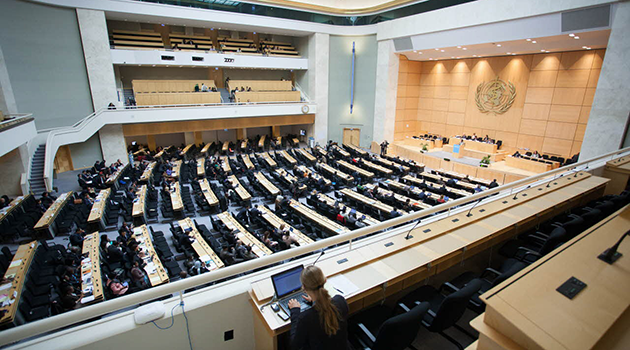 การประชุมมุ่งเน้นเกี่ยวกับโซลูชันทางวิทยาศาสตร์และเทคโนโลยีที่ช่วยยกระดับการเข้าถึงยารักษาโรคและยาชีววัตถุ โดย เมอร์ค ( Merck ) บริษัทวิทยาศาสตร์และเทคโนโลยีชั้นนำ
การประชุมมุ่งเน้นเกี่ยวกับโซลูชันทางวิทยาศาสตร์และเทคโนโลยีที่ช่วยยกระดับการเข้าถึงยารักษาโรคและยาชีววัตถุ โดย เมอร์ค ( Merck ) บริษัทวิทยาศาสตร์และเทคโนโลยีชั้นนำ
เป็นเจ้าภาพจัดการอภิปรายแบบคณะในระหว่างการประชุมสมัชชาอนามัยโลกสมัยที่ 72 ที่นครเจนีวา ประเทศสวิตเซอร์แลนด์
การอภิปรายจัดขึ้นในหัวข้อ “Leaving no one behind: from philanthropy to sustainable health solutions.
How can decentralized manufacturing be part of an integrated approach to tackling NTDs and advancing Universal Health Coverage?”
โดยมีผู้เชี่ยวชาญด้านสุขภาพและนโยบายแถวหน้าของโลกเข้าร่วมการอภิปรายดังนี้ - Dr. Brett Giroir รัฐมนตรีช่วยว่าการกระทรวงสาธารณสุขสหรัฐ
- Dr. Matshidiso Moeti ผู้อำนวยการประจำแอฟริกาขององค์การอนามัยโลก - Prof. Dr. Peter Hotez คณะบดีคณะเวชศาสตร์เขตร้อน วิทยาลัยแพทยศาสตร์เบย์เลอร์ (รัฐเท็กซัส สหรัฐอเมริกา) และผู้อำนวยการศูนย์พัฒนาวัคซีนแห่งโรงพยาบาลเด็กเท็กซัส
- Subhanu Saxena ผู้อำนวยการประจำยุโรปของ Life Science Partnerships ภายใต้มูลนิธิ Bill & Melinda Gates Foundation - Dr. Udit Batra ซีอีโอกลุ่มธุรกิจชีววิทยาศาสตร์ และสมาชิกคณะกรรมการบริหารของเมอร์ค
Dr. Udit Batra ซีอีโอกลุ่มธุรกิจชีววิทยาศาสตร์ และสมาชิกคณะกรรมการบริหารของเมอร์ค
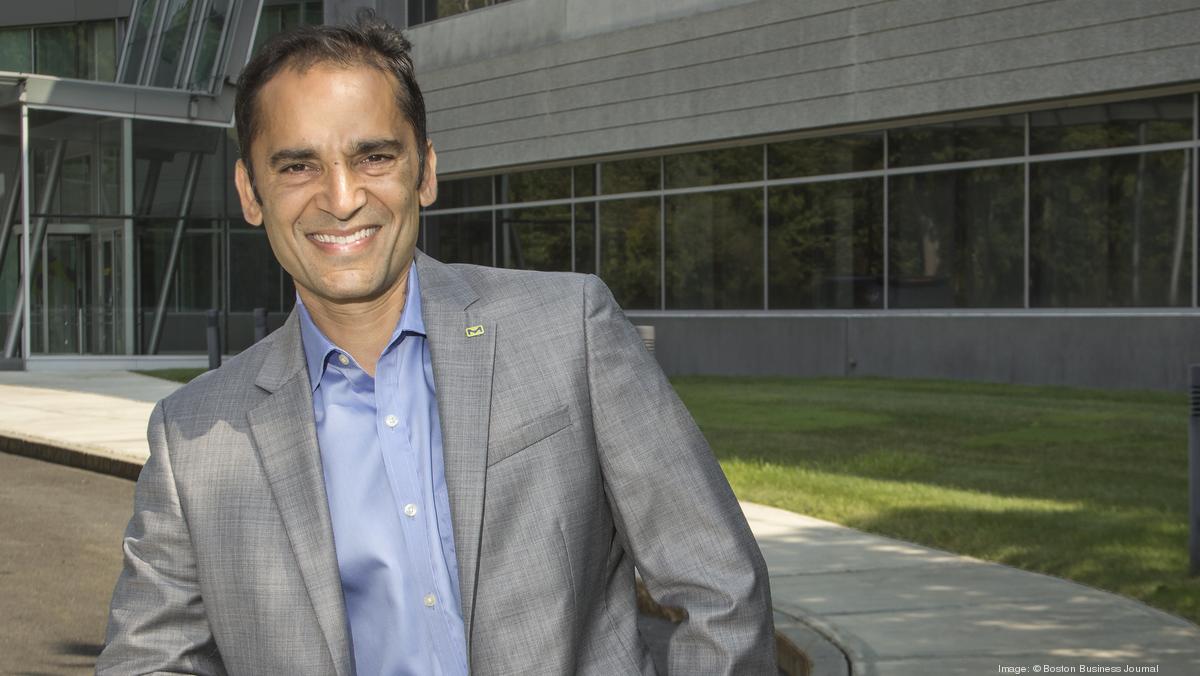 คุณ Batra กล่าวว่า “เมอร์คมุ่งมั่นยกระดับการวิจัยและพัฒนาเพื่อกำจัดโรคที่ถูกละเลยและโรคอุบัติใหม่ เช่น โรคพยาธิใบไม้เลือด ซึ่งเป็นโรคพยาธิชนิดหนึ่งที่พบบ่อยที่สุดและสร้างความสูญเสียมากที่สุดในประเทศเขตร้อน
คุณ Batra กล่าวว่า “เมอร์คมุ่งมั่นยกระดับการวิจัยและพัฒนาเพื่อกำจัดโรคที่ถูกละเลยและโรคอุบัติใหม่ เช่น โรคพยาธิใบไม้เลือด ซึ่งเป็นโรคพยาธิชนิดหนึ่งที่พบบ่อยที่สุดและสร้างความสูญเสียมากที่สุดในประเทศเขตร้อน
โดยมีผู้เสียชีวิตจากโรคนี้มากกว่า 280,000 คนต่อปี เราและองค์การอนามัยโลกต้องการรับมือกับความท้าทายระดับโลกเหล่านี้และมอบคุณภาพชีวิตที่ดีขึ้นให้แก่ทุกคน”
คณะผู้เชี่ยวชาญได้หารือเกี่ยวกับบทบาทของการกระจายฐานการผลิตยาเพื่อรับมือกับปัญหาการเข้าถึงยารักษาโรคและยาชีววัตถุ และจัดการรกับโรคเขตร้อนที่ถูกละเลย
องค์การอนามัยโลกเปิดเผยว่า การผลิตเทคโนโลยีด้านสุขภาพเป็นเป้าหมายสำคัญของภาครัฐในประเทศกำลังพัฒนาทั่วโลก และภาครัฐของหลายประเทศได้มีการร่วมมือกับภาคเอกชนเพื่อตั้งฐานการผลิต
คุณ Batra กล่าวเสริมว่า “เรารับรู้จากพันธมิตรและภาครัฐว่ามีความจำเป็นต้องนำฐานการผลิตยามาใกล้ผู้ป่วยให้มากขึ้น ไม่ว่าผู้ป่วยจะอยู่ที่ใดก็ตาม เพื่อลดความเสี่ยงด้านห่วงโซ่อุปทาน ยกระดับการรับมือกับโรคประจำถิ่น
รวมถึงทำให้ผู้ผลิตขายยาในราคาที่เหมาะสมและอยู่ได้ ปัจจุบัน โซลูชันแบบใช้ครั้งเดียวและกระบวนการชีวภาพทำให้ความปรารถนาดังกล่าวเป็นจริงได้ เราพร้อมสนับสนุนภาครัฐและผู้ผลิตในการกระจายฐานการผลิตยา เพื่อให้ผู้ป่วยเข้าถึงยาชีววัตถุและยาชีววัตถุคล้ายคลึงที่สามารถช่วยชีวิตได้”
นับตั้งแต่ปี 2550 เมอร์คได้ดำเนินการผ่านทางธุรกิจสุขภาพ เพื่อให้การสนับสนุนองค์การอนามัยโลกในการต่อสู้กับโรคพยาธิใบไม้เลือดในแอฟริกา
ทุกวันนี้ ยารักษาโรคที่ได้ผลที่สุดคือ Cesol® 600 ซึ่งเป็นยาเม็ดที่มีสารออกฤทธิ์ชื่อว่าพราซิควอนเทล โดยเมอร์คผลิตยาดังกล่าวที่โรงงานในประเทศเม็กซิโกและออกค่าขนส่งยาไปยังแอฟริกา
ส่วนองค์การอนามัยโลกทำหน้าที่บริหารจัดการ ติดตาม และบันทึกข้อมูลการแจกจ่ายยาในระดับท้องถิ่น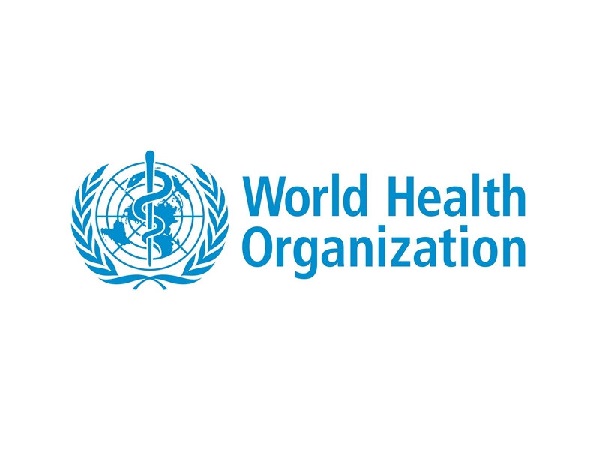
นอกจากนี้ เมอร์คยังร่วมมือกับมหาวิทยาลัยและสถาบันวิจัยชั้นนำหลายแห่งเพื่อพัฒนาอุตสาหกรรมวัคซีนโดยรวม ซึ่งรวมถึงวิทยาลัยแพทยศาสตร์เบย์เลอร์ และสถาบันเจนเนอร์แห่งมหาวิทยาลัยออกซ์ฟอร์ด
เมอร์คสร้างความร่วมมือกับวิทยาลัยแพทยศาสตร์เบย์เลอร์สองโครงการ ผ่านทางธุรกิจชีววิทยาศาสตร์และธุรกิจสุขภาพ
โดยในปี 2560 ธุรกิจชีววิทยาศาสตร์ของเมอร์คได้สร้างความร่วมมือเชิงกลยุทธ์กับเบย์เลอร์เพื่อยกระดับการวิจัยและพัฒนาวัคซีนสำหรับโรคติดเชื้อที่ถูกละเลยและโรคติดเชื้ออุบัติใหม่
และในปีเดียวกัน ธุรกิจสุขภาพของเมอร์คได้ร่วมมือกับเบย์เลอร์ ร่วมด้วยสถาบันสุขภาพและเวชศาสตร์เขตร้อนแห่งออสเตรเลีย ( มหาวิทยาลัยเจมส์คุก รัฐควีนส์แลนด์ ) ทำการวิจัยดัชนีชี้วัดทางชีวภาพใหม่ๆ เพื่อพัฒนาวัคซีนและการวินิจฉัยโรคพยาธิใบไม้เลือด
เกี่ยวกับโรคเขตร้อนที่ถูกละเลย
โรคเขตร้อนที่ถูกละเลย ( Neglected Tropical Diseases: NTDs ) คือกลุ่มโรค 17 โรคที่ส่งผลกระทบต่อประชากรกว่า 1 พันล้านคนที่ส่วนใหญ่อาศัยอยู่ในประเทศกำลังพัฒนา
และเป็นสาเหตุสำคัญที่ทำให้เกิดภาวะทุพพลภาพ จึงถือเป็นโรคที่สร้างภาระทางเศรษฐกิจและสังคม อย่างไรก็ดี องค์การอนามัยโลกเปิดเผยว่าโรคเหล่านี้ส่วนใหญ่สามารถควบคุมได้ และในบางกรณีสามารถกำจัดให้หมดไปได้
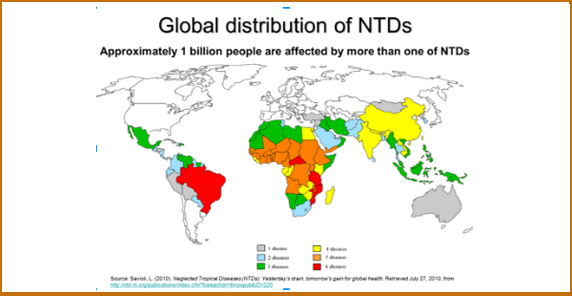 เมอร์คจึงมุ่งมั่นทำการวิจัยเพื่อรักษาหรือแม้กระทั่งกำจัดโรคเหล่านี้ ทั้งยังทุ่มเทความพยายามในการจัดการกับโรค โดยยกให้เป็นส่วนหนึ่งของแคมเปญสนับสนุนการเข้าถึงการรักษาสุขภาพ
เมอร์คจึงมุ่งมั่นทำการวิจัยเพื่อรักษาหรือแม้กระทั่งกำจัดโรคเหล่านี้ ทั้งยังทุ่มเทความพยายามในการจัดการกับโรค โดยยกให้เป็นส่วนหนึ่งของแคมเปญสนับสนุนการเข้าถึงการรักษาสุขภาพ
เกี่ยวกับโรคพยาธิใบไม้เลือด
โรคพยาธิใบไม้เลือดติดต่อผ่านทางพยาธิใบไม้ มนุษย์อาจได้รับตัวอ่อนพยาธิเข้าสู่ร่างกายจากการว่ายน้ำหรือซักผ้าในน้ำที่มีการปนเปื้อน
จากนั้นตัวอ่อนพยาธิจะฟักตัวในร่างกาย อัตราการติดเชื้อจะสูงเป็นพิเศษในเด็ก ซึ่งอาจทำให้เจ็บป่วยอย่างรุนแรงหรือเสียชีวิตได้ เมอร์คจึงร่วมมือกับองค์กรต่างๆ รวมถึงองค์การอนามัยโลก เพื่อกำจัดโรคนี้ให้หมดสิ้นไป
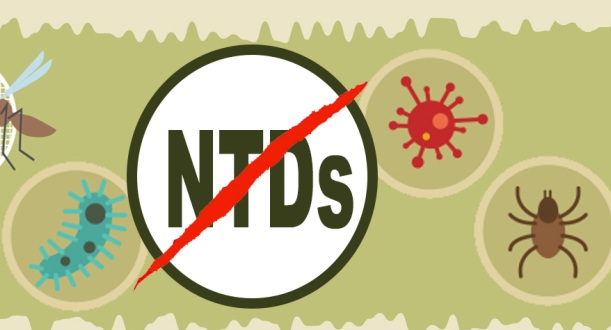 Global health leaders covered biomanufacturing and neglected tropical diseases (NTDs) during 72nd World Health Assembly
Global health leaders covered biomanufacturing and neglected tropical diseases (NTDs) during 72nd World Health Assembly
- Event focused on innovative science and technology-based solutions to increase access to medicines and biologics
Merck, a leading science and technology company, today hosted a panel discussion on the occasion of the 72nd World Health Assembly in Geneva, Switzerland.
The panel entitled, "Leaving no one behind: from philanthropy to sustainable health solutions.
How can decentralized manufacturing be part of an integrated approach to tackling NTDs and advancing Universal Health Coverage?" included some of the world's foremost health and policy experts:
Dr. Brett Giroir, U.S. Assistant Secretary of Health Dr. Matshidiso Moeti, World Health Organization (WHO) regional director for Africa
Prof. Dr. Peter Hotez, dean for the National School of Tropical Medicine at Baylor College of Medicine (Texas, U.S.) and director of the Texas Children's Hospital Center for Vaccine Development
Subhanu Saxena, regional director of Life Science Partnerships, Europe at the Bill & Melinda Gates Foundation
 Dr. Udit Batra, CEO, Life Science and Member of the Merck Executive Board "Merck is committed to advancing research and development toward the elimination of neglected and emerging illnesses, such as schistosomiasis, one of the most common and devastating parasitic diseases in tropical countries, with more than 280,000 people dying each year as a result," said Batra.
Dr. Udit Batra, CEO, Life Science and Member of the Merck Executive Board "Merck is committed to advancing research and development toward the elimination of neglected and emerging illnesses, such as schistosomiasis, one of the most common and devastating parasitic diseases in tropical countries, with more than 280,000 people dying each year as a result," said Batra.
"We, like the World Health Organization, aim to tackle these global challenges and offer a better quality of life."
The panel discussed the role of decentralized manufacturing as a strategy to address the problem of accessing medicines and biologics and tackling NTDs.
Manufacturing of health technologies has been an objective by officials in developing countries around the world who are working with private sector partners to establish production, according to the WHO.
"We understand from both our partners and governments that there is a strong desire to bring biomanufacturing closer to patients, wherever they live, to alleviate supply chain risk, respond to endemic diseases and manufacture at an acceptable or competitive cost," Batra said.
"Today's single-use and bioprocessing solutions help make that aspiration possible. We stand ready to support governments and manufacturers in advancing their decentralized biomanufacturing infrastructure to enhance patient access to life-saving biologics and biosimilars."
Since 2007, Merck, through its Healthcare business sector, has been supporting the WHO in the fight against schistosomiasis in Africa.
The most effective treatment for this disease to date is Cesol® 600, a tablet that contains the well-tolerated active ingredient known as praziquantel.
Merck produces the tablets at its plant in Mexico and covers the transport and logistical costs involved in getting the tablets to Africa, while WHO manages, monitors and documents distribution at the local level.
Merck has significant collaborations with leading universities and research institutes to help advance the vaccine industry as a whole, including Baylor College of Medicine and Oxford University's Jenner Institute.
The company has two separate collaborations with Baylor College of Medicine, one through its Life Science business and the other through its Healthcare business.
In 2017, the Life Science business of Merck formed a strategic alliance with Baylor to advance vaccine research and development for neglected and emerging infections.
Also in 2017, Merck's Healthcare business began a collaboration with the Australian Institute of Tropical Health and Medicine (James Cook University, Queensland) and Baylor to research new biomarkers for the development of vaccines and diagnostics for schistosomiasis.
About Neglected Tropical Diseases
Neglected tropical diseases (NTDs) are a set of 17 diseases that disproportionately affect more than 1 billion people living primarily in the developing world.
As a leading cause of disability, NTDs carry social and economic burdens. However, according to the WHO, many of these diseases can be controlled and, in some cases, eliminated.
Merck is committed to research that will treat or even eliminate NTDs and has intensified its efforts to tackle NTDs as part of its campaign to provide access to health.
About Schistosomiasis
Schistosomiasis is transmitted by flatworms. By swimming or washing laundry in contaminated water, people can contract the worm larvae, which then infest their internal organs.
The infection rate is especially high among children, and even when it is not fatal, the consequences are serious.
In partnership with other organizations including the WHO, Merck has set the goal to fully eliminate this disease. เว็บไซต์สุขภาพ
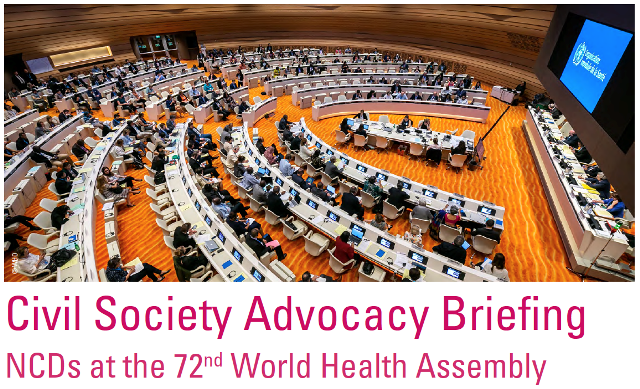
24 พฤษภาคม 2562
ผู้ชม 2005 ครั้ง

